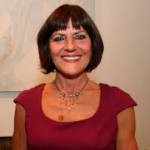Developmentalist and Psychologist Lois Holzman Talks About “Being an Independent” on her her blog. Lois Holzman is the director and co-founder of the East Side Institute, a New York City-based international research and training center for new approaches to human development and community.
Being an Independent
Next month I’ll be attending the National Conference of Independents being held in NYC on February 16th. It’s a gathering of hundreds of independent voters from across the US sponsored by IndependentVoting.org, a national strategy, communications and organizing center working to develop a movement of independent voters for progressive post-partisan reform of the American political process. The president of the organization, Jackie Salit, is a masterful political organizer and dear friend, whose been making the talk circuit with her book, Independents Rising: Outsider Movements, Third Parties, and the Struggle for a Post-Partisan America.
I’ve been an independent all of my adult life (and, looking back, also as a teenager). The first time I voted it was for a third party candidate; I’m pretty sure it was Dick Gregory for President in 1968. Back then, I didn’t know much about partisanship, but I had positions and values. By the mid-70s, though, I began to become educated about how electoral politics works and doesn’t work. I was disgusted with the hypocrisy and corruption of the two parties, not to mention the millions of dollars wasted on campaigns. My vote for Barak Obama in 2008 was my first for a Democrat or Republican in a national election. The four years since then have only deepened my own aversion to parties and convinced me of the necessity of working together to effect some radical changes in the political culture. I think it’s essential for ongoing human development—just as ongoing human development is essential to changing the political culture.
That’s why I’m also an independent professionally—an independent developmentalist. I came to independence as a scholar at about the same time as I did politically. In 1969 I entered Columbia University’s PhD program in linguistics, transferring from Brown University’s program. When it was time to choose my dissertation topic, the Columbia Department wouldn’t accept child language as a legitimate linguistics topic and, somewhat haughtily, suggested I might find someone in psychology who’d take me on. I did, and they did. But I was disgusted equally by the bureaucratic splitting up of human life by academic disciplines and the pseudo-scientific/philosophical rationalizations given for it.
From the 1970s, even as I was on a university faculty, I was building an independent location (the East Side Institute, the Barbara Taylor School, the All Stars Project) from which I and others believed we had a better shot at creating something less determined by institutional psychology and education, by virtue of not being tied to their structural constraints, both explicit—methods of teaching, grading, research funding, pressure to write and publish in a certain way, competition)—and implicit, that is, the politics and the philosophy that are embedded in the social science disciplines. I hoped that I could do a different kind of work and perhaps make some discoveries as an independent scholar that I wouldn’t be able to otherwise. I left the university 15 years ago, but continue to relate to academia actively from outside its institutional borders.
“Independence” is a great place to be! You really can see differently. And become.
To find out more about the February 16th National Conference of Independents, visit the conference website.


{ 0 comments… add one now }